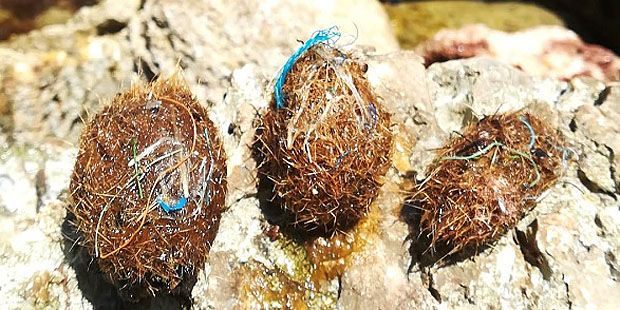
🌿 Seagrass can help us get rid of plastic particles in the sea
A type of seagrass can catch plastic in its leaves which are then collected in balls and washed up on the beaches when there is a storm.
Share this story!
Posidonia oceanica is the name of a species of seagrass that can act as a trap for plastic floating around in the Mediterranean . It shows a study from the University of Barcelona. The researchers behind the study estimate that up to 867 million plastic objects can get stuck in the seagrass every year.
That the plastic gets stuck in the seagrass instead of floating around in the sea where animals can eat the plastic, get caught in it or otherwise be damaged is of course good, but Posidonia oceanica also has another advantage. When the leaves wither, they fall off and form balls that float up on the beaches.
- The plastic is collected in a spawning ground of natural fibers that form what are called Neptune balls and these balls are then transported out of the seagrass and up onto the beaches when there is a storm, says Anna Sànchez-Vidal, one of the researchers behind the study.

The plastic that is stuck in the withered leaves is then baked into the ball and follows up on land. There, of course, it will be much easier to find and take care of the plastic than if it floats around in the sea.
Another advantage of Posidonia oceanica is that there is so much of it. It creates large meadows of seagrass around the shores of the Mediterranean and can grow at anything from half a meter deep down to 40 meters deep. In total, researchers estimate that Posidonia oceanica covers 1.2 million hectares of the Mediterranean floor.
Seagrass catches both larger pieces of plastic and small microplastics that are smaller than five millimeters in size. When the researchers examined balls that floated on Mallorca's beaches, they discovered that the Neptune balls could contain up to 1,500 small and large plastic particles per kilo of ball.
Exactly where all the balls are going, the researchers are not sure yet. Some float up on the beaches, but how large a share it is and if there are balls that end up elsewhere and in that case where will future research show.
By becoming a premium supporter, you help in the creation and sharing of fact-based optimistic news all over the world.


